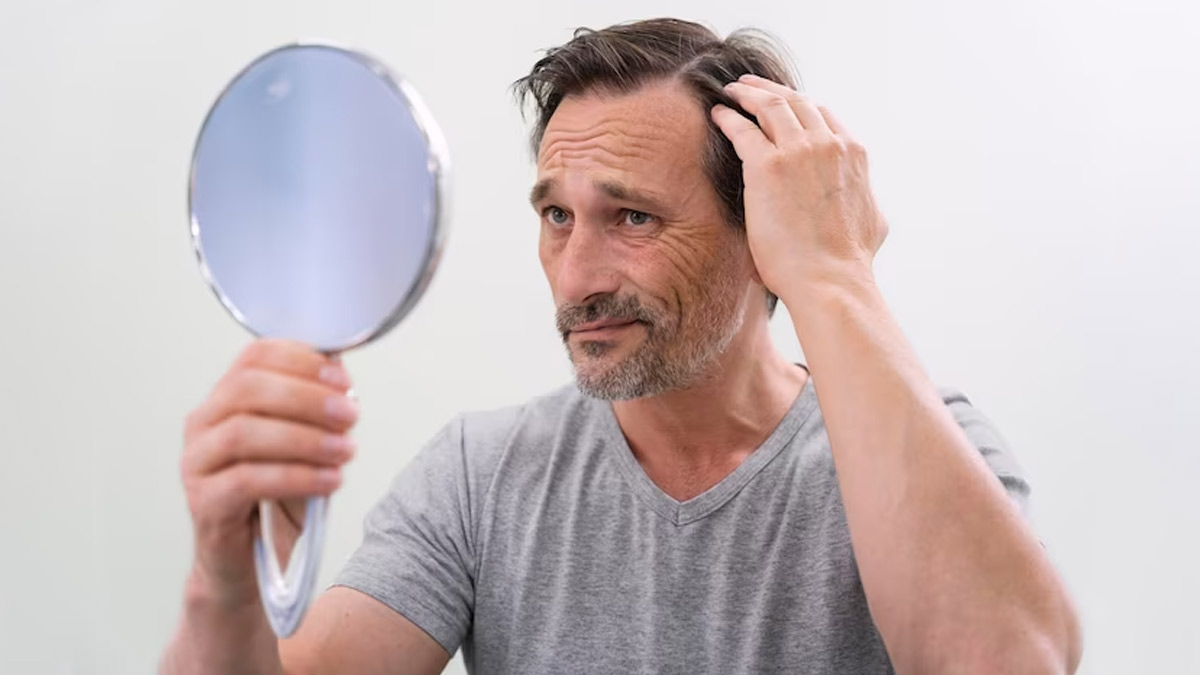
Hair loss is a common occurrence in men, affecting up to 70% of males in their lifetime. Despite its prevalence, hair loss can cause significant psychological damage, affecting a man's self-esteem, confidence, and overall quality of life.
Table of Content:-
Types Of Psychological Damage Of Hair Loss In Men
This article will explore the psychological effects of hair loss in men, its impact on their mental health, and the available treatments and resources to help manage these concerns.
1. Feeling of embarrassment
The psychological impact of hair loss on men can be significant. Hair loss can cause feelings of embarrassment, shame, and low self-esteem. It can also trigger anxiety and depression, leading to social withdrawal and decreased participation in activities. Men with hair loss often report feeling less attractive and less confident in their personal and professional lives, which can affect their relationships and career opportunities.
2. Ageing
One of the primary reasons for the psychological impact of hair loss is its association with ageing. For many men, hair loss is a visible sign of getting older, which can be difficult to accept. Hair loss can also be associated with virility and masculinity, and losing hair can lead to feelings of emasculation and a loss of identity. This can be particularly challenging for younger men, who may not have fully developed a sense of self or established their identity.

Also read: World Health Day 2023: Impact Of What You Eat On Your Mental Health
3. Self-consciousness
In addition to the emotional impact of hair loss, the physical changes associated with hair loss can also be challenging. Men may feel self-conscious about their changing appearance, especially if they have previously been confident in their physical appearance. They may also struggle with how to style their hair to conceal balding areas, which can be time-consuming and stressful.
4. Mental Health
Research has shown that hair loss can have a significant impact on mental health. Studies have found that men with hair loss are more likely to experience symptoms of depression and anxiety than those without hair loss. Additionally, hair loss can affect a man's social life, leading to a decreased quality of life and a sense of isolation.
Hair Fall Treatment And Management
1. Medication
The good news is that there are resources and treatments available to help manage the psychological impact of hair loss. One of the most effective treatments for hair loss is medication, such as finasteride or minoxidil. These medications work to slow down or stop hair loss, and in some cases, may even help regrow hair. However, it's important to note that these medications can have side effects and should only be taken under the guidance of a healthcare professional.
Also read: World Health Day 2023: Impact Of What You Eat On Your Mental Health

2. Counselling or therapy.
Another option for managing the psychological impact of hair loss is counselling or therapy. Talking to a mental health professional can help men process their emotions related to hair loss and develop coping strategies to manage the associated anxiety and depression. Counselling can also provide a safe and supportive space to explore feelings of self-doubt and low self-esteem.
3. Lifestyle Changes
Finally, there are lifestyle changes that men can make to help manage the psychological impact of hair loss. Regular exercise, a healthy diet, and getting enough sleep can all contribute to a more positive mindset and improved overall well-being. Men may also find it helpful to explore new hobbies or interests, to build confidence and self-esteem in areas outside of their appearance.
Hair loss can have a significant psychological impact on men, affecting their self-esteem, confidence, and overall quality of life. The association with ageing and loss of identity can be particularly challenging, leading to feelings of anxiety and depression. However, there are treatments and resources available to help manage these concerns, including medication, counselling, and lifestyle changes. By taking steps to manage the psychological impact of hair loss, men can improve their mental health and lead happier, more fulfilling lives.
Also watch this video
How we keep this article up to date:
We work with experts and keep a close eye on the latest in health and wellness. Whenever there is a new research or helpful information, we update our articles with accurate and useful advice.
Current Version